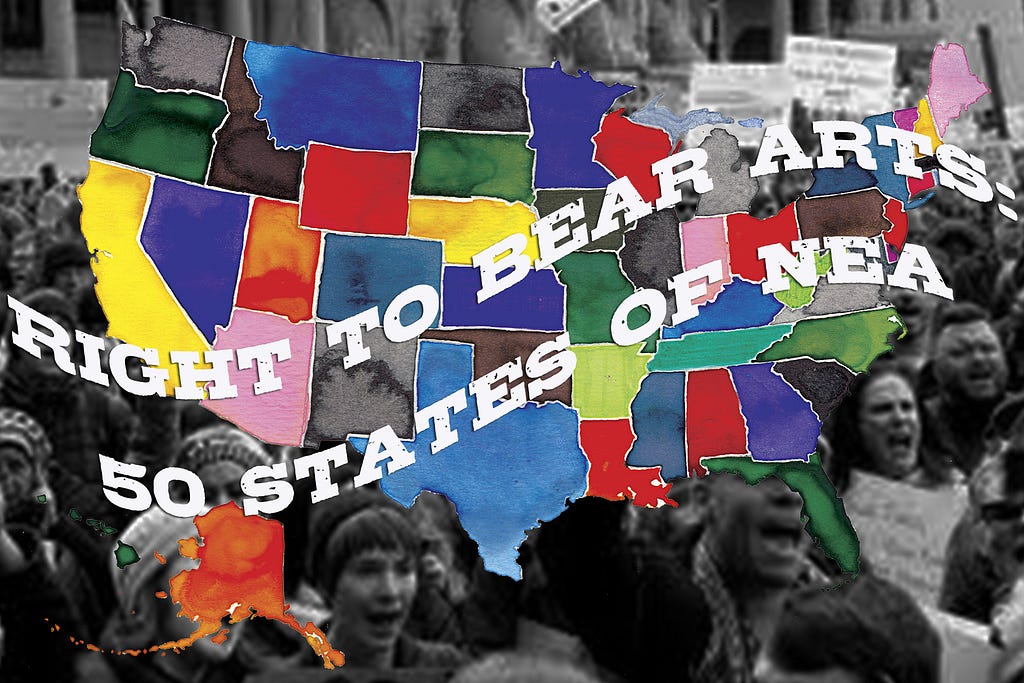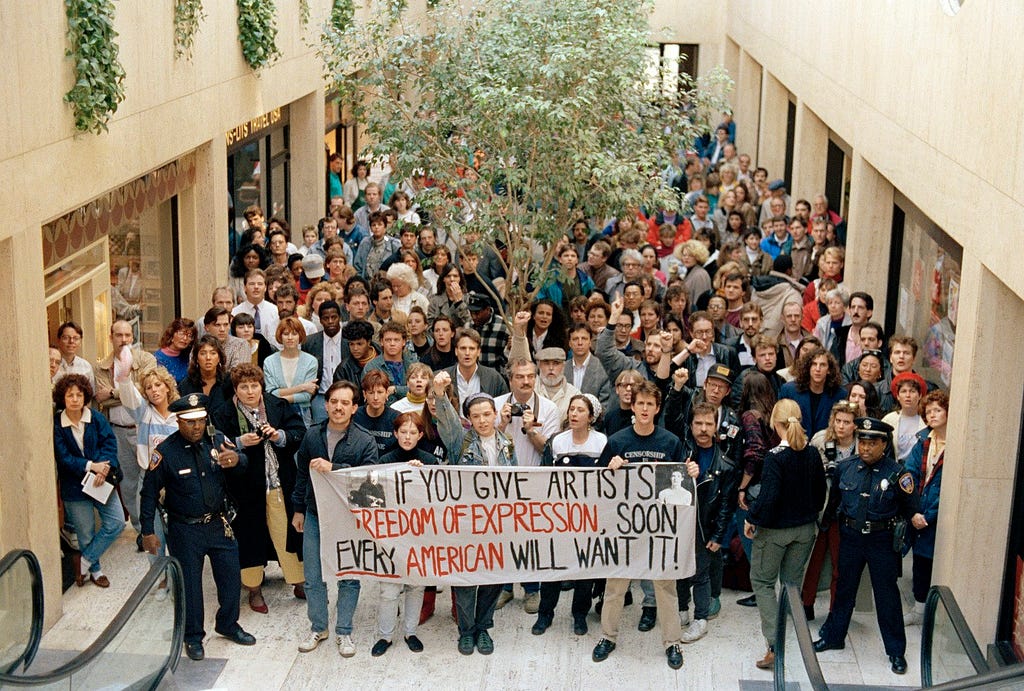
As a citizen involved in the arts, I don’t need to be convinced that the proposed cuts to the NEA and NEH are far reaching and harmful — threatening and damaging to all types of communities in all types of places.
However, my experience (and awareness) of the impact of arts, literature and community organizations is not a universal one; indeed, it’s one that lobbies against the NEA would like to bury under thinly veiled anti-intellectual rhetoric, claiming that these funds go primarily to elitist financial interests. In this conservative Op-Ed for the Washington Post, George Will refers to the term “arts community” as “cloying,” “clever branding” created by these interests, and claims of nurturing civic value to be no more than “sugary, jargon-clotted arts gush.”
This week I attended a town hall at Housing Works Books in NYC, hosted by Lit Net, where panelists stressed the influence of the Heritage Foundation, a conservative lobby in Washington (and an advisor #45’s administration). In addition to what you might have read on recent articles from the Hill or similar about these budget cuts being largely modeled on the HF’s “Blueprint for Balance,” we learned that the same foundation is responsible for an earlier document, “10 Good Reasons to Eliminate the NEA.” The doc is from an earlier effort at defunding, but still represents the tone and ideological modelling on which this bill rests. #2 on this list is the claim that the NEA is “Welfare for Cultural Elitists” — which seems crazy to us, but sounds quite logical to those for whom the larger anti-intellectual narrative rings “true.”

Also at the Washington Post, art and architecture critic Philip Kennicott paints quite a different picture altogether: one in which cuts to “the arts, science, education, culture, public broadcasting and community development,” represent something far more Machiavellian. These are “carefully calculated attacks on communities, especially those that promote independent thinking and expression,” and they include not only those that opposed the incumbent’s agenda, but also those “too powerless to resist,” in states like West Virginia, Alabama, and Kentucky.
Indeed — via arts and education, as across the board, these cuts will primarily affect not the elite (ironically, a good description for those proposing them, but I digress) but rather the communities that are already most vulnerable.
What can we do? As someone who grew up with meagre resources, in a single parent family, I am deeply indebted to the public programming funded by the NEA. And I was lucky to attend schools that had arts programming and music instruction — now only available in a fraction of public schools across the country.
Today, I run an arts organization myself, able to function as a nonprofit thanks to the fiscal sponsorship of Fractured Atlas — and while I may not have ever received NEA funding, Fractured Atlas has (every year since 2006, actually), helping them support our work… as well as that of thousands of individuals and organizations, all over the country.
I thought to myself, What can I do? I already gather and distribute citizen resources for effective, strategic activism, and built The Operating System infrastructure with the intention to collectively model possibility in the face of the oppressive, gate-keeping, hierarchical blueprints too many organizations follow by default.
And I realised that I, too, am barely aware of the impact of the NEA in communities outside my own. So I’m taking myself — and you, dear reader — on a journey across the 50 states, to learn about the organizations that have been funded across the country and the communities they serve. We’ll start with Alaska, end with Wyoming, and explore the arts everywhere in between.
I’m doing this work pro-bono, (as I do all my work for The Operating System), because I believe we must do all we can to amplify each other in these times if we want real and lasting change. If you’d like to support this work, I would be humbled by any support you chose to give.
Stay tuned for Alaska! What better time to be connecting with other organizations? We can learn so much from each other.
Right to Bear Arts : 50 States of NEA was originally published in DrunkenBoat on Medium, where people are continuing the conversation by highlighting and responding to this story.
